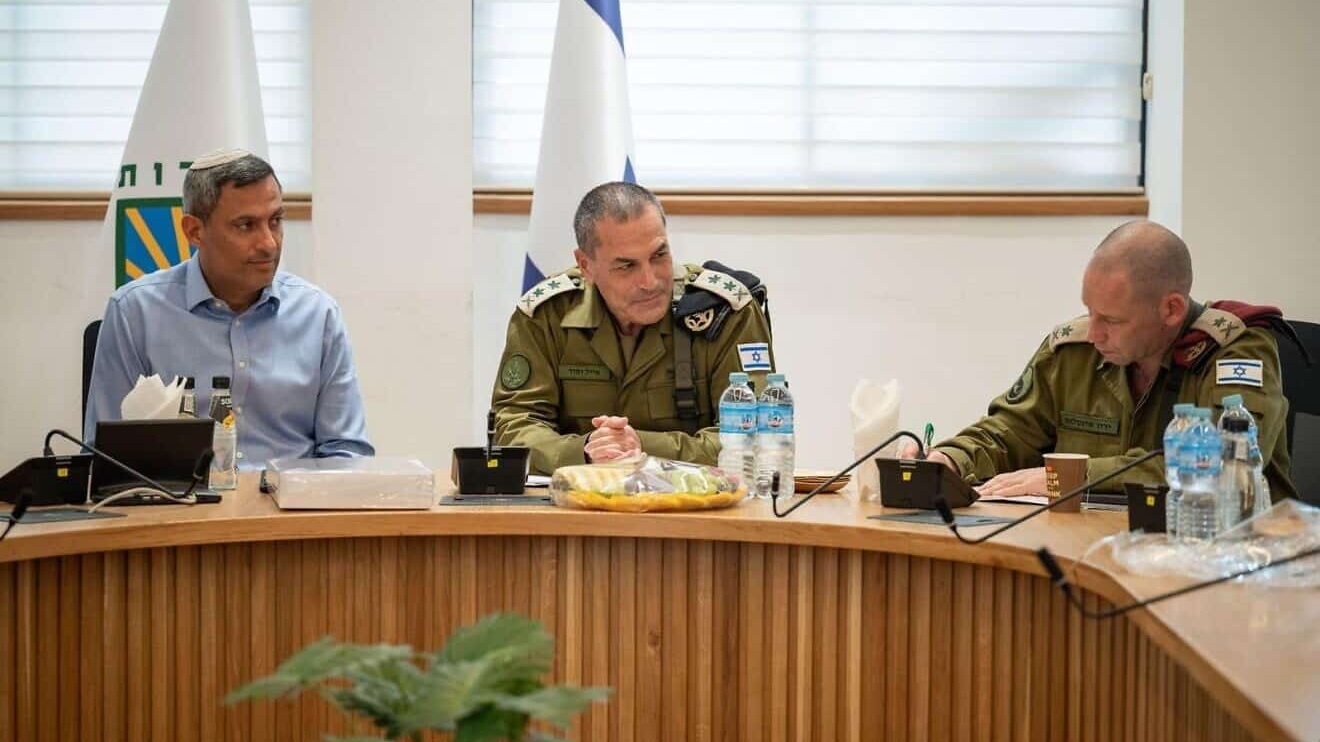If the Israeli leadership is not careful, “Little Hitler” Yahya Sinwar in Khan Yunis will drag Israel into psychological terror with the Israeli hostages and tactically play them off against us. After the four-day ceasefire and the release of 50 Israelis, he can suddenly announce that he has found 10 more Israelis that he can release, but that Israel will have to again pay in “cash.” This leads to tensions in Israeli society and in the government. What is more important? The war and the destruction of Hamas, or the release of the hostages? According to a recent poll by the Jewish People Policy Institute (JPPI), 78% of Israeli Jews believe that they will win the war and that the main goal of the war is to overthrow Hamas. Only 14% see the return of the hostages as the primary condition for victory.
On October 7, the Israeli government and the entire security apparatus failed the citizens of Israel in their hour of need. In addition to the 1,200 dead, our enemies kidnapped over 200 Israelis into the Gaza Strip, making the entire war against the barbaric Hamas regime even more difficult. In the end, the Israeli government must decide what is more important to it: the release of all Israeli hostages, or the destruction of the entire terrorist organization Hamas in the Gaza Strip and abroad. It’s not an easy decision, it’s true, but nobody really wants a ceasefire. Not the soldiers, not the active duty troops, not the reservists. Nobody wants to lose momentum or the high morale. But on the other hand, civilians are being held in Gaza, and that’s intolerable.

From a biblical perspective, the taking of hostages was always a pretext for war. Not only that, but the biblical Exodus from Egypt, the spiritual foundation of our faith on which most of Israel’s festivals are based, is a redemption and in a sense an act of liberation by God. The Children of Israel were slaves in Egypt at the time, and although God initially negotiated with Pharaoh through Moses for the release of the hostages, God powerfully delivered His people.
Already in the Bible we read how Abraham risked his life and went to war against four kings for his nephew Lot. They kidnapped Lot and others from his family and took them prisoner. This happened near the Dead Sea, near Sodom and Gomorrah.
When Abram heard that his relative had been taken captive, he called out the 318 trainedmen born in his household and went in pursuit as far as Dan. During the night Abram divided his men to attack them and he routed them, pursuing them as far as Hobah, north of Damascus. He recovered all the goods and brought back his relative Lot and his possessions, together with the women and the other people. (Genesis 14:14-16)
In another story later, when the people of Israel were still traveling in the desert, the Canaanite king of Arad took captive several Israelites. And what did the children of Israel do then? They went to war against the king of Arad and seized his cities.
Then Israel made this vow to the Lord: “If you will deliver these people into our hands, we will totally destroy their cities.” The Lord listened to Israel’s plea and gave the Canaanites over to them. They completely destroyed them and their towns; so the place was named Hormah. (Numbers 21:2-3)
It is also recorded of David, before he became king of Israel, that when the Amalekites attacked his city of Ziklag in southern Israel and captured the women, he and his men pursued the kidnappers and brought back the hostages–children and mothers. This biblical scenario is reminiscent of Hamas’s barbaric October 7 raid in the south, when Israel’s worst enemies, the modern Amalekites, invaded Israel.
When David and his men reached Ziklag, they found it destroyed by fire and their wives and sons and daughters taken captive. So David and his men wept aloud until they had no strength left to weep. David’s two wives had been captured—Ahinoam of Jezreel and Abigail, the widow of Nabal of Carmel. David was greatly distressed because the men were talking of stoning him; each one was bitter in spirit because of his sons and daughters. But David found strength in the Lord his God. (1 Samuel 30: 3-6)
After the catastrophe, David cries out to heaven. His entire family was taken captive and all the men were massacred. And the people of Israel want to kill their leader, because he and his army have completely failed. Where was the security? Where were the soldiers? Where was the secret service? Where was the king? How was it possible to conquer the city of Ziklag in the Negev? All the failure and lack of security is blamed on David. And what does David do? He repents and strengthens himself in the Lord, the God of Israel. He recognizes that he and his people have sinned.

The people of Israel are in a different situation today and are trying to reach a hostage deal with their enemies through diplomatic detours. I don’t want to criticize that, it’s in the hands of the Israeli leadership. According to the same aforementioned survey, only 30% of the Israeli population now has confidence in Israel’s Prime Minister Benjamin Netanyahu. So far he has shown no remorse, but has more or less elegantly shifted the blame for the catastrophe onto those around him. By contrast, trust in the Israeli general staff and army commanders is very high (86%), even though the army also failed on October 7th. But the army is the people, and the people want to destroy the Amalekites in Gaza. And now there’s fear that the hostage deal, which is important in itself, will screw everything up. Israel’s war plans are not being implemented, the fighting spirit among the people is cooling down and not all hostages are being released. In this scenario, Israel has lost once again, and that is what most of the people are afraid of.
Abraham, Moses and David understood this from the beginning and therefore freed their hostages through the war. This automatically creates a powerful deterrence strategy that ensures the necessary calm in the face of our enemies. Israel must strive for this at all costs, otherwise there will be no peace in the country. In the 1976 Entebbe liberation operation, Israel freed 102 mostly Israeli hostages from Uganda, including the Air France crew. This made Israel famous, and the Arab nations were afraid to mess with Israel. This is the moment to which Israel must return. Today it looks as if “Little Hitler” wants to lure Israel into a trap. Unless the Israeli government and military will surprise us and, with God’s help and grace, lead us to a creative and surprising victory. “And then the land rested again for forty years.” That’s all I ask.














Am I the only one that thinks that all of the hostages are in Egypt?? Probably that nasty beast by the name Sinwar as well. Why would he be hiding in a tunnel??
Why does Israel not go out and offer a million dollars and new identity and rescue out of Egypt or Gaza to whomever can tell, where the hostages are??.
I don’t understand much of this government’s doings. . . Netanyahu and others have been more busy explaining and meeting with officials from the west than anything else. Israel should be angry with the west and start getting weapons from somewhere else than the US.
Israel should … start getting weapons from somewhere else than the US ??
Is there any nation that may be willing to support Israel with weapons? None!
That is the painful reality and the hindrances (shackles) that any Israel PM has to face and to wrestle with. One of the most frustrating jobs on earth!
I’m not so sure. How about Germany? Hungary? Some African countries? I’m sure God will never allow that Israel doesn’t have weapons. I refuse to believe that.
In the end, though, it seems that Israel will be all alone. My country, Denmark, used to stand with Israel, but I’m not sure anymore.
By the way, Mr Schneider: EXCELLENT ARTICLE!
I totally agree with you Aviel. The leaders of Israel need to humble themselves right here, right now. Then and only then will the Lord avenge His people.
2 Chronicles 7:14; then, if my people, who bear my name, will humble themselves, pray, seek my face and turn from their evil ways, I will hear from heaven, forgive their sin and heal their land.
Having said that, I’m also aware that quite a few Israelis have turned their backs from the God of their fathers, and they too need to repent and return to their God. At the same time, I pray for the Body of Yeshua in the land, that they would not cease interceding for their people, as we undergird them from where we are by daily asking for God’s divine intervention regardless of men’s idiosyncracy and foibles. At the end of the day; Then Adonai said to me, “You have seen well, because I am watching to fulfill my word. Jeremiah 1:12” HE IS FAITHFUL AND HE WILL DO IT.
The longer the delay, the less successful will be the “eradication” of Hamas. Unfortunately, Israel is between the “proverbial” “rock and a hard place” as the hostages were of course taken against their will, and the international community will always decry the loss of supposedly “innocent civilians” (whether hostages or not). It would seem that the more prudent choice would be for Israel to continue attempting to rescue the hostages directly, rather than to “bargain with the enemy” (thus showing weakness, losing their momentum, and allowing the enemy to refresh and regroup).
Perhaps the best that can be hoped for in today’s environment is to be able to damage Hamas sufficiently to significantly delay the next evil attack (from them or any other source). However as history repeatedly shows, so long as there is even one survivor or descendant that feels their “people” were wronged by Israel, revenge will continue to rear its ugly head, even if it is generations in the future. This is at least partly the point of 1st Samuel 15, where Saul was commanded to “utterly destroy” the Amalekites, including women and infants. While this “may” have been possible in that day and age, the Israelites did not complete the task, as is evident in subsequent scriptures where these people again reappear. Today, this evil has spread throughout the globe and although it can be “resisted”, it can no longer be “eliminated” without direct divine intervention.